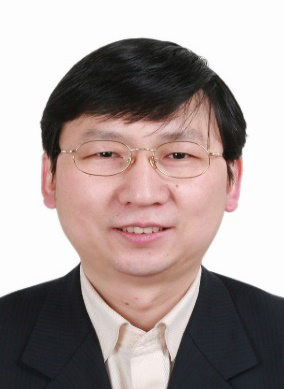 ACADEMY OF MARXISM CHINESE ACADEMY OF SOCIAL SCIENCES
ACADEMY OF MARXISM CHINESE ACADEMY OF SOCIAL SCIENCES
 ACADEMY OF MARXISM CHINESE ACADEMY OF SOCIAL SCIENCES
ACADEMY OF MARXISM CHINESE ACADEMY OF SOCIAL SCIENCES
 ACADEMY OF MARXISM CHINESE ACADEMY OF SOCIAL SCIENCES
ACADEMY OF MARXISM CHINESE ACADEMY OF SOCIAL SCIENCES
|
Name |
Wang Zhongbao |
Department |
Editorial Office of International Critical Thought |
 |
|
Professional Title |
Researcher |
Job title |
Director |
|
|
Academic qualification |
PhD |
Adviser |
to postgraduate students |
|
|
Research area |
Marxist political economy, political economy of socialism with Chinese characteristics |
|||
|
Contact |
Email: wangzb@cass.org.cn Tel: 010-85195750 |
|||
|
Academic Profile |
Wang Zhongbao, PhD in Economics, is Researcher at the Academy of Marxism, Chinese Academy of Social Sciences (CASS), Deputy Director of the Marxist Research Center for Economic and Social Development, CASS, Professor at the School of Marxism, University of Chinese Academy of Social Sciences, Executive Editor-in-Chief of International Critical Thought and Director of its editorial office, Executive Editor-in-Chief of World Review of Political Economy and Director of its editorial office, Vice President and Secretary General of the China Association of Political Economy, Executive Council Member of the Chinese Society for Foreign Economic Theories Research, and Council Member of the Beijing Economist Forum. He is mainly engaged in research on socialist economic reform, development of state-owned enterprises, labor-capital relations, income distribution, sustainable development, and economic globalization. Main academic contributions: In the research on the theory of Marxist political economy: he puts forward the consistency, unity and integrality between Marxist microeconomic theory and macroeconomic theory; demonstrates theoretically the microeconomic basis for the sustainable development of the socialist macro-economy, i.e., the necessity for the existence of the principal status of publicly-owned enterprises, the necessity for the reform of socialist market economy at the primary stage of socialism, and the necessity for the market-based distribution according to work; he proposes to measure the degree of public nature of enterprises by the degree of realization of distribution according to work; he makes efforts to incorporate the analysis of the capitalist economy and the analysis of the socialist economy into a unified theoretical analytical framework, and promotes the critical political economy traditionally centered on capital and labor to construct a political economy of construction and development centered on production and firms; he advances the Marxist theoretical system of economic crisis, i.e., the Marxist economic crisis theoretical system consists of the Marxist core theory, peripheral theories and nodes of the economic crisis, and the Marxist economic crisis theoretical system is an open and developing theoretical system; and he maintains that Marxism is a science about sustainable development. In terms of the application and policy discussion of Marxist political economy, he proposes that the central government should regularly publicize the operation performance of state-owned enterprises and state-owned capital, as well as the change, confiscation and use of their profits, under the supervision of the whole people, and make a special report on the operation of state-owned enterprises and state-owned capital to the National People’s Congress (NPC) every year to be subject to the NPC’s inquiry and held accountable to the NPC, and other policy suggestions in line with the direction of reform of the socialist market economy. He also proposes that the relations between participants involved in economic globalization are of the type of a positive-sum game, and that China should promote the development of economic globalization and at the same time share more of the benefits resulting from economic globalization by mastering core technologies, cultivating advantages in intellectual property, implementing the strategy of “competing on quality” and “brand” strategy, improving the quality of the foreign capital introduced, establishing and improving China’s “green card” system, and enhancing China’s capability of independent innovation; he thinks that the economic globalization promoted by the Belt and Road Initiative is a new type of globalization which is different from the old capital-dominated globalization; he proposes that China’s modernization is the socialist modernization with the free and all-around development of human beings put forward by Marx as its goal, which is guided by the scientific theory of modernized Marxism, led by the scientific leadership of the modernized Communist Party of China, supported by the scientific development of the modernized public economy, and under the common scientific work of the entire people. |
|||
|
Main Academic Achievements |
Representative academic works: Monographs: Public Nature of Enterprises, Efficiency and Economic Development: The Microeconomic Analysis of Marxist Macroeconomics. Economic Science Press. 2018. Economic Globalization and the Changes in the Interest Relations of China. Fudan University Press. 2007. Articles: “The Composition and Development of the Marxist Economic Crisis Theoretical System.” Economic Review Journal, 2018, no. 3. Coauthored with Cheng Enfu. “The Path and Experience of China’s Socialist Economic Transition.” Studies on Mao Zedong and Deng Xiaoping Theories, 2013, no. 2. “Several Theoretical Issues in the Reform and Development of State-Owned Enterprises.” Teaching and Research, 2010, no. 5. “China’s Capital Strategy Choice for Economic Globalization.” Journal of Management, 2010, no. 5. “Public Nature of Enterprises, Efficiency, and Economic Development.” Contemporary Economic Research, 2008, no. 6. “Benefits of Economic Globalization and Its Sharing.” Journal of Chongqing University of Posts and Telecommunications, 2008, no. 5. “Globalization of Technology and China’s Strategy Choices.” Jiangxi Social Sciences, 2007, no. 10. “Globalization of Trade and China’s Trade Interests.” Studies on Marxism, 2007, no. 9. |
|||